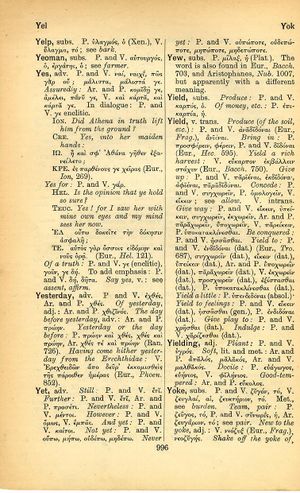yew
From LSJ
Θεὸς πέφυκεν, ὅστις οὐδὲν δρᾷ κακόν → Deus est, qui nihil admisit umquam in se mali → Es ist ein göttlich Wesen, wer nichts Schlechtes tut
English > Greek (Woodhouse)
subs.
P. μῖλαξ, ἡ (Plat.).
The word is also found in Eur., Bacch. 703, and Aristophanes, Nub. 1007, but apparently with a different meaning.

